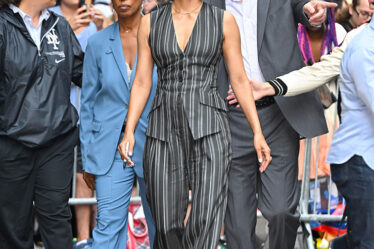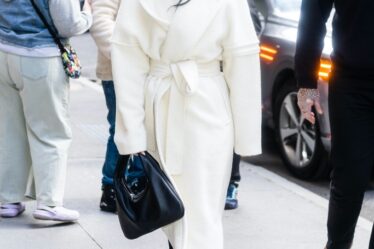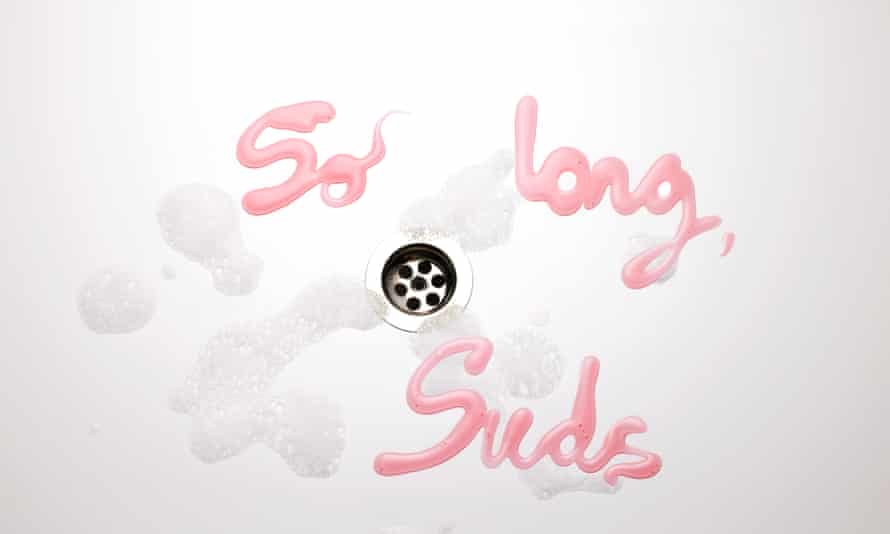
We all know the beauty industry is good at persuading us to buy things we don’t need. But when it comes to shampoo, that’s just basic cleanliness, right?
Well, maybe not. A new breed of “no-shampoo shampoos” are creeping into bathrooms, born of the idea that traditional shampoo is bad for hair.
There is some science to this. Most shampoos contain compounds called surfactants which lift oily dirt away from the hair and scalp, allowing it to be easily rinsed away. Among these are lathering agents called sulfates – sodium lauryl sulfate, or SLS, is the most infamous – which strip your hair of its natural oils and moisture. Before you know it, you’re compensating with conditioner or even hair masks every time you wash, trapped in a Faustian pact with all sorts of products, in constant pursuit of perfectly conditioned hair.
As a daily hair-washer, I have always splashed out on decent shampoos (many are sulfate-free, though they contain other detergents), but have started experiencing problems in the last few years. My hair is straight, medium-fine and reaches past my shoulders. I have oily roots so a daily wash is essential, but this can leave the tips parched. My hair drinks up conditioner but my hair can look like a scarecrow’s if I wait too long between cuts. Plus it takes forever to dry. To me, the idea of a shampoo that somehow isn’t actually a shampoo is music to my ears – or perhaps hydration to my dry ends.
Hairstory’s New Wash (one of the most popular of the products I tried) is free from sulfates and detergents, products which are supposedly harsh on the scalp. It uses plant oils and naturally derived fatty alcohols, and needs to be massaged thoroughly into the scalp, left for a couple of minutes, then carefully rinsed away. Hairstory says its formula is also biodegradable and free of chemicals that harm the environment.
The idea of turning your back on shampoo isn’t a new one. There’s a large online community devoted to the “no-poo” method – skipping products altogether or replacing them with kitchen ingredients such as vinegar, baking soda or – gulp – raw eggs. Then there’s co-washing, where you “wash” your hair with conditioner to reduce moisture loss, which originated in the African-Caribbean community, and has led to “co-cleansers” such as DevaCurl’s No-Poo. What sets these no-shampoo shampoos apart from co-washing is their promise to leave all hair types soft, clean and shiny, as well as regulating oil production.
One of the weird things about them is that they don’t lather, because they’re free of water-soluble detergents. The creamy textures also make it difficult to work the products evenly across my scalp, so I end up using quite a lot on the first go. This is where I should mention that they don’t come cheap. The ones I tried range from £23 for 200ml to £44 for a 236ml pouch. They also take ages to rinse out, which puts paid to my hopes for using less water and spending less time in the shower.
Still, there’s certainly demand for improved haircare. Maddie Malone, a beauty and personal care analyst at market research firm Mintel, tells me the UK women’s haircare category is more robust than ever, and has been since 2021 – presumably when we emerged from the pandemic and had to make ourselves presentable again. She points to a “skinification” of haircare, treating the scalp with the same care and focus as the rest of our skin.
Malone says these new “hybridised products” prove her point, adding: “Women show a willingness to trade up in this category, suggesting that haircare is still considered an affordable luxury.”
But while manufacturers equate no-shampoo shampoos with a healthier scalp, trichologists are less convinced.
“I’d say you’re more likely to experience scalp problems from under-washing than over-washing,” says Sara Alkazraji, education manager at the Institute of Trichologists. “In fact, an excess of these natural oils can lead to problems like dandruff and seborrheic dermatitis, so they need removing to maintain a balanced ecosystem on the scalp.”
She often encounters patients who cut back on shampoo in the hope their hair will learn to “clean itself”, a theory popular among no-pooers. She says: “It’s rubbish – it’s the same as not vacuuming your carpet. There’s nothing self-cleaning about it.”
Alkazraji recommends shampooing hair like mine every day or two, but says textured or chemically processed hair could go longer between washes.
Anabel Kingsley, consultant trichologist , agrees: “Your hair can’t be trained to do anything, because it’s dead.”
Sure enough, after I use a few different no-shampoo shampoos for several days, my hair feels slightly greasy by the evening (this didn’t happen with normal shampoos). It also seems to have lost its shine, and has a slightly unappealing, lank texture. I also miss the smell of newly shampooed hair, since shampoo substitutes are largely fragrance-free.
Kingsley is sympathetic, but not surprised: “Some people get on with detergent-free shampoos – if their scalp doesn’t get overly greasy – but they’re certainly not for everyone. If people have used shampoo alternatives for months and like how their hair feels, that’s great – especially those with coiled curl [afro or very curly] hair, because these products probably won’t tangle them in the way shampoo will, as the cleansing agents are so mild. But they may not be as thorough at cleansing, and those oils will weigh down finer hair.”
For balance, the next morning I revert to my usual shampoo and conditioner. Once it’s dry, somehow my hair feels even fresher and glossier than it did when I was using shampoo full-time, and I’m embarrassed to admit I can’t stop touching it.
After a little fine-tuning, I work out that I get my best hair from alternating products – with a shampoo substitute one day, and a proper shampoo and conditioner the next. Everyone’s hair is different but this is what worked for mine. Have I saved time, money or shelf space? Absolutely not. But at least my hair feels less frazzled, healthier and – crucially – clean.
Is it really worth it? Putting pricey ‘no-shampoos’ to the test
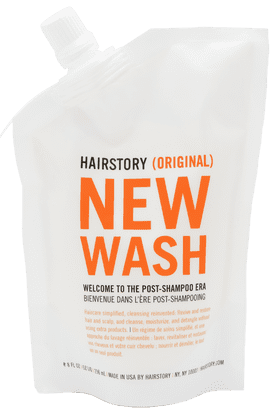
Comes in Rich, Deep and Original versions for different hair types (I used Original) in a recyclable plastic pouch. There’s the option of an online eco-refill subscription service.
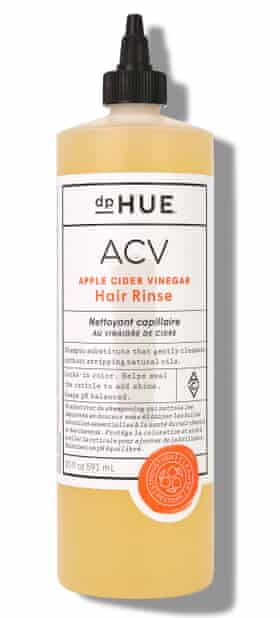
Is it any good? This was the one I liked most, by some way – I could probably get away with using regular shampoo twice a week if I used this daily in between. The texture feels like a lotion, and it somehow doesn’t seem to weigh hair down. After rinsing, my hair felt soft and clean, with a subtle, minty smell that I quite like. One point deducted for the frankly astronomical price. Hairstory suggests a pouch will last for about eight weeks, but as a frequent hair washer I think I’d get through it in six.
Score 9/10
dpHUE ACV Hair Rinse, £32 for 250ml
This product’s biggest claim is its ability to protect your colour (I’m blonde) while the apple cider vinegar (a hero ingredient among hardcore no-pooers) adds shine.
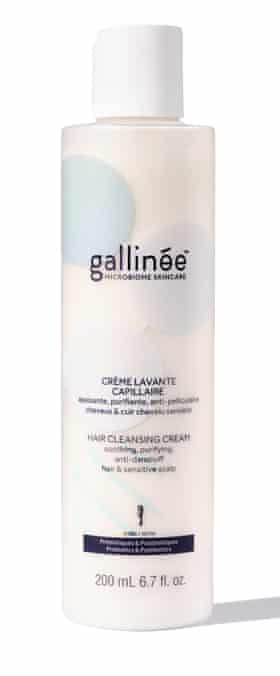
Is it any good? The watery texture makes it difficult to work into the scalp, but I was impressed by how much it softened my hair. It does smell a bit vinegary, but it’s subtle and doesn’t linger. My curly-haired husband also tried this, and picked it as his favourite. But with my ultra-straight hair, which gets greasy easily, I could only get away with using this for one day.
Score 8/10
Gallinée Hair Cleansing Cream, £23 for 200ml
Gallinée’s entire shtick is about “good bacteria” and protecting the skin’s microbiome, and this product contains fermented rice water, pre- and post-biotics and skincare ingredients such as vitamin E.
Is it any good? Probably the richest of the bunch, this has a nice, slightly fruity smell, is ultra-creamy and feels gentle and soothing on the scalp. But I struggled to rinse it out and get my hair fully clean, and it felt pretty greasy again by the evening. It does feel hydrating though, so it would probably be great for afro hair.
Score 6/10

